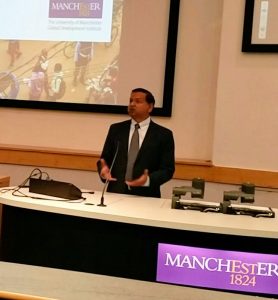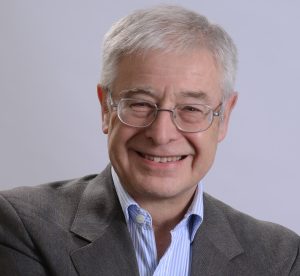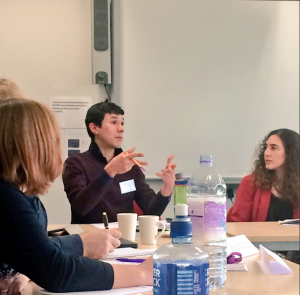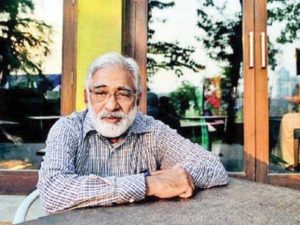#DevTrends2017: Domestic vs. international inequalities
Rory Horner begins our series looking at some of the big trends in development to look out for in 2017.
2016 was, by many accounts, a strange year. Contemporaneously with the often discussed “rising powers”, 2016 saw the growth and resonance of “declinism” in what could (at least relatively-speaking) be called “falling powers”. Take for example, the political success of campaigns summarised in mottos to “Make America Great Again” in the US or “Take Back Control” in the UK. read more…
1.5 to stay alive? The Power of Least Developed Countries at UN Climate Talks
By Robbie Watt, Global Development Institute
Less developed countries that are highly vulnerable to the impacts of climate change, and which have very low greenhouse gas emissions, make up a substantial majority of nations represented at the United Nations Framework Convention on Climate Change (UNFCCC). How can these countries, which represent so many people at risk from dangerous climate change, exert power at UN climate talks?
Saleemul Huq has been a first-hand advisor to ministers and officials from Small Island Developing States (SIDS), Least Developed Countries (LDCs), and African countries, some of which have joined together in the Climate Vulnerable Forum, a South-South cooperation platform. In his Global Development Institute Lecture, Dr Huq described the remarkable history of Climate Vulnerable Forum (CVF) members’ advocacy for greater ambition on climate change mitigation, which led to a rare victory: an agreed long term temperature goal of 1.5°C warming. read more…
Brazil and corruption: don’t hate the player, hate the game?
By Chris Lyon, PhD researcher at the Global Development Institute. The working title of his thesis is Exploring a relational conception of social justice: liberals, radicals, and Brazil’s ‘new social contract’.
Much of IRIBA’s research has been cautiously optimistic, analysing changes that saw Brazil embark on a path of pro-poor growth and consolidate its newly redemocratised institutions. Now, the distinctive development ‘model’ that emerged in the early 2000s faces its first major challenge, in the shape of the current political crisis.
A key aspect of this crisis is corruption; widespread, elite-level, blatant, endemic. As this working paper details, the main corruption problem in Brazil is ‘grand’ corruption, as opposed to petty street-level shakedowns. This is bad for business, growth, government performance, social solidarity, inequality, democracy. Corruption is bad news. However, in Brazil, extremely low conviction rates have historically meant almost de facto impunity. read more…
Free online seminar on ‘Development in the Next Ten Years: Challenges and Opportunities’
The University of Manchester’s Global Development Institute would like to invite you to participate in a free online seminar on ‘Development in the Next Ten Years: Challenges and Opportunities’. The seminar celebrates the launch of the new Global Development Institute Scholarships – enabling students to fund their development studies at The University of Manchester.
It will take place on Tuesday 20 December 2016 at 16:00.
The online seminar will be led by Professor Diana Mitlin, Professor of Global Urbanism and Managing Director of the Global Development Institute, who has received international recognition for her research in development. It will be an invaluable opportunity to discuss the future of development with a world-leading academic. Watch Diana explaining The University of Manchester’s work to address global inequalities on our website:
During the online seminar, you will also be able to hear about GDI’s scholarships, which include fee waivers for selected master’s courses in international development. To find out more beforehand, including eligibility, please visit our website.
The University of Manchester’s Global Development Institute addresses global inequalities in order to promote a socially-just world in which all people, including future generations, are able to enjoy a decent life. The University of Manchester is ranked 7th in the world for Development Studies (QS World University Rankings 2016) and in the most recent UK Research Excellence Framework (REF 2014), our development studies research was ranked 1st for impact and 2nd for quality.
To register for this event please click here.
Post-Brexit and Development: How to make the UK’s next trade regime development-friendly?
By Virgi Sari, PhD researcher at The Global Development Institute 
Following the vote to leave its natural trade partner, the EU, the British government is now faced with the challenging task of designing its new trade policies, including those with developing countries. The leading role of the UK in shaping global development through trade with developing countries is long established. As Brexit moves forward, the important question becomes: how will the UK maintain its legacy of using trade to contribute toward global development? How to construct new trade policy that is development friendly?
The Principles
On 26th October 2016, Professor Alan Winters of the University of Sussex delivered a lecture as part of the Global Development Institute Lecture Series on “Post-Brexit trade policy and development” . Winters highlighted some key principles, which can serve as a guide to devise UK’s new trade policy and brings its development-friendliness element. First and foremost, the UK government needs to recognize the heterogeneity of its developing country trading partners. While it is impractical to have a unique trade policy for each country, it is feasible to design the policies in clusters, from Least Developed Countries (development-led trade policy) to and the emerging economies of the BRICs (stronger trade-focus).
Winters also mentioned the new trade policy will likely be just trade policy, rather than more comprehensive foreign policy. As a result, the UK has to accept the fact it will lose its ability to influence the policies of developing countries, and of course, the EU too. The government should aim for a simple and pragmatic trade policy with developing countries, to achieve administrative efficiency and conserve the limited resources the government already has to spend on the Brexit related negotiation processes. read more…
Welcome to the Manchester Migration Lab!
 On Monday 5th December the University Of Manchester hosted it’s first Manchester Migration Lab workshop to identify and discuss the range and depth of work on migration being carried out by colleagues across a range of schools and institutes.
On Monday 5th December the University Of Manchester hosted it’s first Manchester Migration Lab workshop to identify and discuss the range and depth of work on migration being carried out by colleagues across a range of schools and institutes.
Following an in-depth scanning of current university research on migration 50 members of the staff and 20 PhD students were identified and invited to this session with convenors
At the first ever workshop, four key concepts and ideas were selected for discussion:
- Borders
- Journeys
- Agency
- Home
‘The Infiltrator’ versus ‘The Refugee’
GDI Lecture Series: Bangladesh Confronts Climate Change with David Hulme, Manoj Roy and Joseph Hanlon
On Wednesday, 7 December, Global Development Institute Executive Director, Professor David Hulme, Dr Manoj Roy (Lancaster University) and Dr Joseph Hanlon (Open University) discussed their new book: Bangladesh Confronts Climate Change. You can find the video and podcast from the event below and the book is available to purchase here.
The power of the sewing machine: A masterclass in building alliances for workers’ rights and sustainability in global production networks
By Aarti Krishnan and Corinna Braun-Munzinger, PhD researchers at the Global Development Institute
 The ESRC project on ‘Rising Powers, Labour Standards and the Governance of Global Production Networks’ and Global Production Networks, Trade and Labour research group at the Global Development Institute, University of Manchester, on 14 October 2016 hosted a talk by Karamat Ali, executive director of the Pakistan Institute of Labour Education & Research (PILER).
The ESRC project on ‘Rising Powers, Labour Standards and the Governance of Global Production Networks’ and Global Production Networks, Trade and Labour research group at the Global Development Institute, University of Manchester, on 14 October 2016 hosted a talk by Karamat Ali, executive director of the Pakistan Institute of Labour Education & Research (PILER).
“In life there are a few things worth doing, saving lives is one of them” read more…
Strange but possible: Has increased equality in the US played a role in Trump’s win?
 Professor David Hulme, Executive Director, Global Development Institute
Professor David Hulme, Executive Director, Global Development Institute
Interesting and alarming food for thought? And, yes. You read correctly. Could equality (not inequality and alienation) be the true crux of the matter when it comes to understanding the election of a multi-billionaire, member of the global elite to the White House?
In a refreshing and very alternative argument to the election post mortems of recent weeks, Nora Lustig – an economics professor and Director of the Commitment to Equity Institute at Tulane University – has suggested that perhaps more equality in three key dimensions may be feeding a greater sense of unfairness, indignation, and impotence than the increase in income and wealth inequality in the US.
